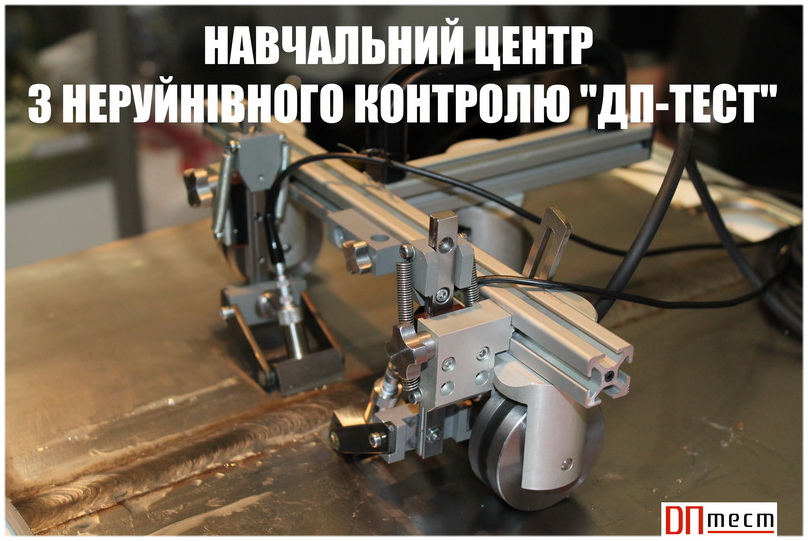В даній дипломній роботі було проведено дослідження впливу аугментованих даних на ефективність згорткової нейронної мережі із додаванням у навчальну вибірку малого об’єму відсоткове відношення аугментованих даних. Було розглянуто додавання 10, 20 та 30 відсотків аугментованих даних відносно кількості даних початкової вибірки.
Застосовувалися три методи аугментації: відзеркалення; збільшення; обертання.
У якості даних використовуються три типи дефектів дорожнього одягу: сітка тріщин; вибоїна; лінійна тріщина.
Дослідження проводилися на архітектурі MobileNet із використанням підходу передавального навчання.
У результаті було розглянуто десять вибірок із аугментаціями, точність на яких практично не відмінна одна від одної, що свідчить про недійсність підходу розширення малої навчальної вибірки невеликим відсотковим відношенням аугментаційних даних.
Керівник: проф., д.п.н. Протасов А.Г.
Повний перелік дипломних проєктів та робіт
Список використаної літератури
1. Строительство автомобильних дорог : учебник / коллектив авторов ; Ушаков В. В., Ольховикова В. М. – М., 2013. - 576 c.
2. Ремонт и содержание автомобильных дорог. Том II : cправочная энциклопедия / коллектив авторов ; А.П. Васильев — М., 2004 — 1129с.
3. Distress Identification Manual for the Long-term Pavement Performance Project, (1993).
4. ASTM D6433-20, (2010). Standard Practice for Roads and Parking Lots Pavement Condition Index Surveys.
5. ДСТУ 8954:2019. Автомобільні дороги. Оцінювання рівня дефектності дорожнього одягу.
6. Tao, C. V., & Li, J. (Eds.). (2007). Advances in mobile mapping technology.
(Vol. 4). CRC Press. Burningham, S., & Stankevich, N. (2005).
7. Chiang, Kai-Wei & Tsai, Guang-Je & Zeng, Jhih. (2021). Mobile Mapping Technologies. 10.1007/978-981-15-8983-6_25.
8. Direct Sensor Orientation in Airborne and Land-based Mapping Applications. (2001).
9. K. -W. Chiang, G. -J. Tsai, Y. -H. Li and N. El-Sheimy, "Development of LiDAR-Based UAV System for Environment Reconstruction," in IEEE Geoscience and Remote Sensing Letters, vol. 14, no. 10, pp. 1790-1794, Oct. 2017, doi: 10.1109/LGRS.2017.2736013.
10. Giudici, Henri & Mocialov, Boris & Myklatun, A.. (2021). ViaPPS: A Mobile Pavement Profiling System.
11. Vung, Pham & Nguyen, Du & Donan, Christopher. (2022). Road Damages Detection and Classification with YOLOv7. 10.48550/arXiv.2211.00091.
12. Muhammad Haroon Asad, Saran Khaliq, Muhammad Haroon Yousaf, Muhammad Obaid Ullah, Afaq Ahmad, "Pothole Detection Using Deep Learning: A Real-Time and AI-on-the-Edge Perspective", Advances in Civil Engineering, vol. 2022, Article ID 9221211, 13 pages, 2022. https://doi.org/10.1155/2022/9221211.
13. Maeda, Hiroya & Sekimoto, Yoshihide & Seto, Toshikazu & Kashiyama, Takehiro & Omata, Hiroshi. (2018). Road Damage Detection and Classification Using Deep Neural Networks with Smartphone Images: Road damage detection and classification. Computer-Aided Civil and Infrastructure Engineering. 33. 10.1111/mice.12387.
14. Hongxia Li, Weixing Wang, Mengfei Wang, Limin Li, Vivian Vimlund,
A review of deep learning methods for pixel-level crack detection, Journal of Traffic and Transportation Engineering (English Edition), Volume 9, Issue 6, 2022, Pages 945-968, ISSN 2095-7564, https://doi.org/10.1016/j.jtte.2022.11.003.
15. Silva, Wilson & Schwerz de Lucena, Diogo. (2018). Concrete Cracks Detection Based on Deep Learning Image Classification. Proceedings. 2. 5387. 10.3390/ICEM18-05387.
16. Majidifard, Hamed & Adu-Gyamfi, Yaw & Buttlar, William. (2020). Pavement Image Datasets: A New Benchmark Dataset to Classify and Densify Pavement Distresses. Transportation Research Record: Journal of the Transportation Research Board. 2674. 10.1177/0361198120907283.
17. Girshick, Ross & Donahue, Jeff & Darrell, Trevor & Malik, Jitendra. (2013). Rich Feature Hierarchies for Accurate Object Detection and Semantic Segmentation. Proceedings of the IEEE Computer Society Conference on Computer Vision and Pattern Recognition. 10.1109/CVPR.2014.81.
18. Long, Jonathan & Shelhamer, Evan & Darrell, Trevor. (2015). Fully convolutional networks for semantic segmentation. 3431-3440. 10.1109/CVPR.2015.7298965.
19. Feng, C.; Zhang, H.; Wang, H.; Wang, S.; Li, Y. Automatic Pixel-Level Crack Detection on Dam Surface Using Deep Convolutional Network. Sensors 2020, 20, 2069. https://doi.org/10.3390/s20072069.
20. Kang, Dong H., and Young-Jin Cha. "Efficient attention-based deep encoder and decoder for automatic crack segmentation." Structural Health Monitoring 21.5 (2022): 2190-2205.
21. Qiao, W.; Liu, Q.; Wu, X.; Ma, B.; Li, G. Automatic Pixel-Level Pavement Crack Recognition Using a Deep Feature Aggregation Segmentation Network with a scSE Attention Mechanism Module. Sensors 2021, 21, 2902. https://doi.org/10.3390/s21092902.
22. Q. Yang and X. Ji, "Automatic Pixel-Level Crack Detection for Civil Infrastructure Using Unet++ and Deep Transfer Learning," in IEEE Sensors Journal, vol. 21, no. 17, pp. 19165-19175, 1 Sept.1, 2021, doi: 10.1109/JSEN.2021.3089718.
23. H. Liu, X. Miao, C. Mertz, C. Xu and H. Kong, "CrackFormer: Transformer Network for Fine-Grained Crack Detection," 2021 IEEE/CVF International Conference on Computer Vision (ICCV), Montreal, QC, Canada, 2021, pp. 3763-3772, doi: 10.1109/ICCV48922.2021.00376.
24. Di Benedetto, A.; Fiani, M.; Gujski, L.M. U-Net-Based CNN Architecture for Road Crack Segmentation. Infrastructures 2023, 8, 90. https://doi.org/10.3390/infrastructures8050090.
25. Ronneberger, Olaf & Fischer, Philipp & Brox, Thomas. (2015). U-Net: Convolutional Networks for Biomedical Image Segmentation. LNCS. 9351. 234-241. 10.1007/978-3-319-24574-4_28.
26. Simard, Patrice Y. et al. “Best practices for convolutional neural networks applied to visual document analysis.” Seventh International Conference on Document Analysis and Recognition, 2003. Proceedings. (2003): 958-963.
27. Lazaric, Alessandro. (2011). Transfer in Reinforcement Learning: A Framework and a Survey. 10.1007/978-3-642-27645-3_5.
28. Штучна нейронна мережа [Електронний ресурс] – Режим доступу до ресурсу: https://uk.wikipedia.org/wiki/Штучна_нейронна_мережа.
29. Chain rule [Електронний ресурс] – Режим доступу до ресурсу: https://en.wikipedia.org/wiki/Chain_rule.
30. Convolutional neural networks [Електронний ресурс] – Режим доступу до
ресурсу: http://cs231n.github.io/convolutional-networks/.
31. Shorten, C., Khoshgoftaar, T.M. A survey on Image Data Augmentation for Deep Learning. J Big Data 6, 60 (2019).
https://doi.org/10.1186/s40537-019-0197-0.
32. Kang, Guoliang & Dong, Xuanyi & Zheng, Liang & Yang, Yi. (2017). PatchShuffle Regularization.
33. Taylor, Luke & Nitschke, Geoff. (2018). Improving Deep Learning with Generic Data Augmentation. 1542-1547. 10.1109/SSCI.2018.8628742.
34. C. Summers and M. J. Dinneen, "Improved Mixed-Example Data Augmentation," 2019 IEEE Winter Conference on Applications of Computer Vision (WACV), Waikoloa, HI, USA, 2019, pp. 1262-1270, doi: 10.1109/WACV.2019.00139. 10.1109/WACV.2019.00139.
35. Zhun Z, Liang Z, Guoliang K, Shaozi L, Yi Y. Random erasing data augmentation. ArXiv e-prints. 2017.
36. Ian JG, Jean PA, Mehdi M, Bing X, David WF, Sherjil O, Aaron C, Yoshua B. Generative adversarial nets. NIPS. 2014.
37. Leon AG, Alexander SE, Matthias B. A neural algorithm of artistic style. ArXiv. 2015.
38. Krizhevsky, Alex and Sutskever, Ilya and Hinton, Geoffrey E. Advances in Neural Information Processing Systems. Curran Associates, Inc. 2012
39. Karen Simonyan, Andrew Zisserman. Very Deep Convolutional Networks for Large-Scale Image Recognition. ArXiv e-prints. 2015.
40. Kaiming He, Xiangyu Zhang, Shaoqing Ren, Jian Sun. Deep Residual Learning for Image Recognition. ArXiv e-prints. 2015.
41. Howard, Andrew & Zhu, Menglong & Chen, Bo & Kalenichenko, Dmitry & Wang, Weijun & Weyand, Tobias & Andreetto, Marco & Adam, Hartwig. (2017). MobileNets: Efficient Convolutional Neural Networks for Mobile Vision Applications.
42. Arya, Deeksha & Maeda, Hiroya & Ghosh, Sanjay & Toshniwal, Durga & Sekimoto, Yoshihide. (2022). RDD2022: A multi-national image dataset for automatic Road Damage Detection.









